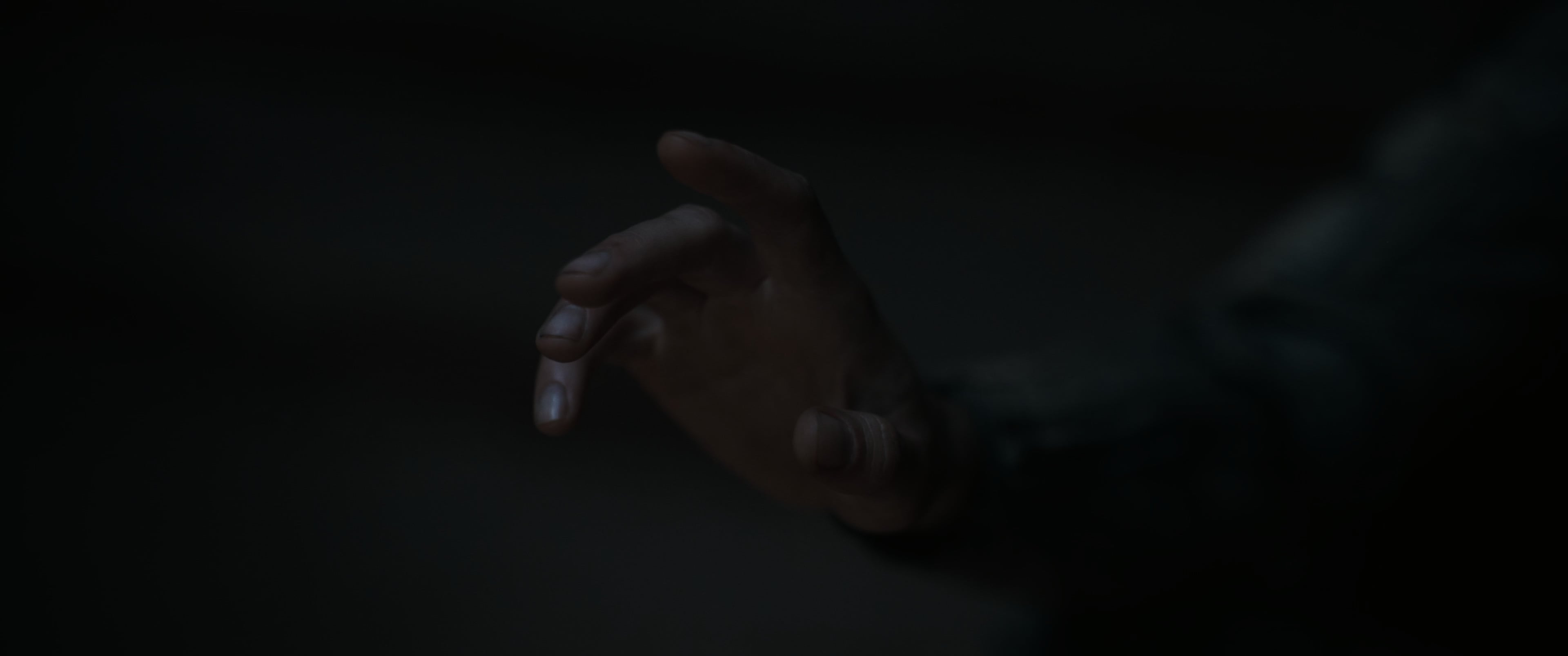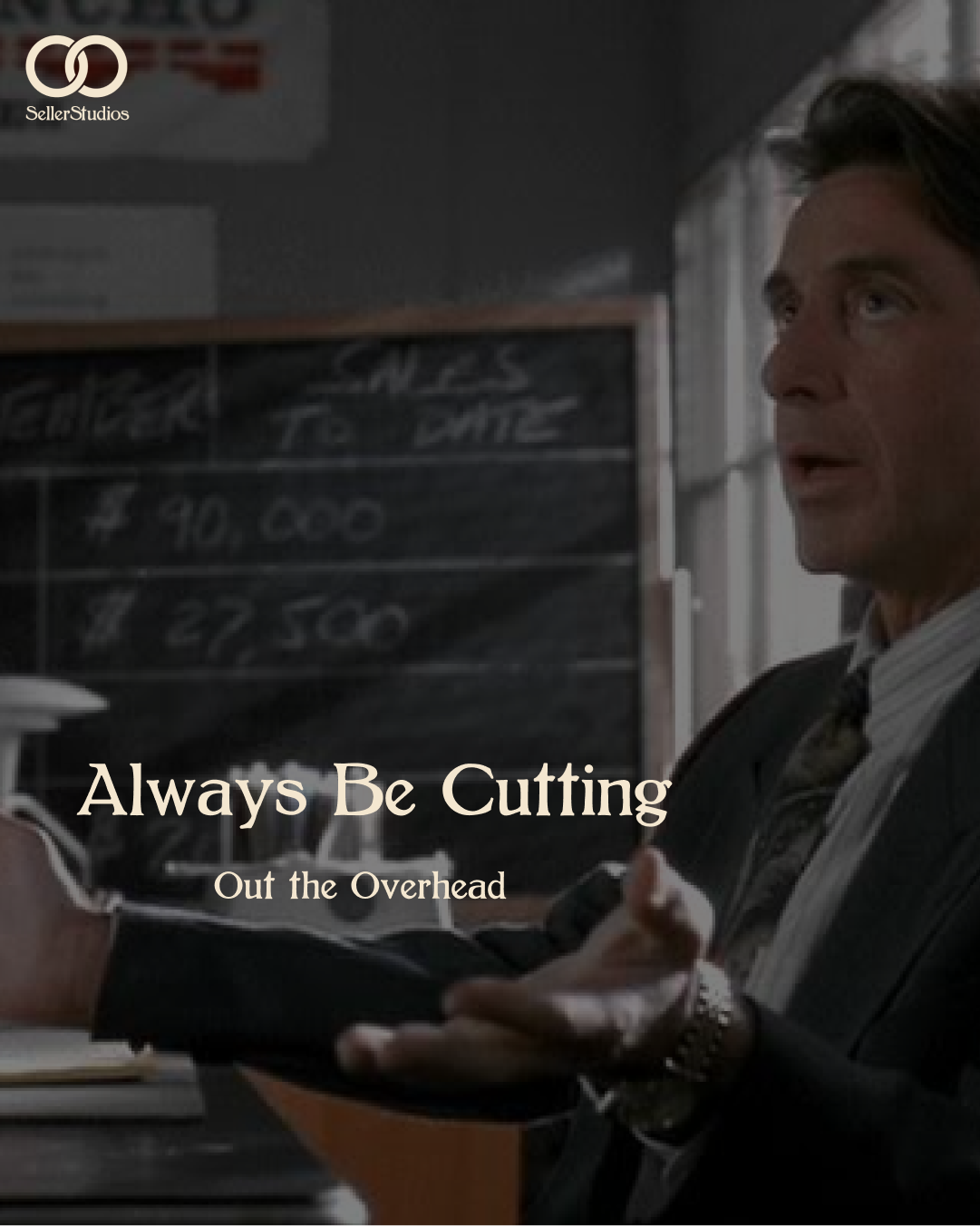New Bag Alert: Vibe Check













You’ve probably seen it before: a villain gets to monologuing, a hero demonstrates their power, or Dune’s Paul Atreides reaches out with an open hand to channel his prescient abilities.

When my brother and I moved in together a couple summers ago, this inspired gesture became a silly way to initiate a serious ritual – a 'vibe check'.
As two jokers with often opposite and vacillating emotional states, I figured out these check-ins were more than funny references early in our stint as roommates. But, recently, I've found this is one of the best people practices in my bag.
Even without a brother or a roommate, you may find this type of check-in transformative for any relationship.
Why do you need this in your bag?
We come to our people (and they come to us) in fresh emotional states all the time. It’s a fast-paced world, and our desire to ‘get on with it’ often eclipses real connection. At some level, we want to know, hence why we ask some variation of “how are you” when we greet people. But we’re quick to hit a “fine”, “good”, or “I can’t call it”.
Even those with the will to communicate well can fall short of doing so in practice. So what happens? Misunderstanding atop emotional disconnect atop emotional numbness. But it doesn’t have to be that way.
The careful, responsible, and empathetic thing to do is figure out where our people are, then meet them there, to the best of our ability. One path to that is vibe checking, whenever and however you pull up on them.
This practice fosters smoother interactions by making it dead simple to customize how you engage with folks based on how they’re feeling, from the moment you start engaging with them.
People engaging in this practice express how they’re doing with ease, honesty, and without the anxiety of miscommunication. They remember how they and other’s felt yesterday, allowing for a better understanding of their emotional journeys.
Ultimately, this type of connection is the foundation for (good) community. One that can celebrate our highs but also empathetically navigate our lows.
What’s a vibe check and how do you do it?
A vibe check is a practice of quickly assessing someone's energy or emotional state.

Like anything else I want to happen repeatedly in my life, I try to make it fun. And if I want it to be fun, I’m going to try to give it a fun name. A practice marinated in fun is best protected from intense and negative emotional backlash.
So if you’re trying to have fun with it, extend your hand toward the person like they do on the TV and say, “vibe check.” Super users can do like Paul and slowly move your hand side to side as if you’re reading your person’s mind.
To keep it simple, respond with a number (1, 2, or 3) representing where you’re at. A ‘1’ means low energy or bad mood, a ‘2’ means baseline energy or good mood, and a ‘3’ means high energy or great mood. If you got it like that, go head and supplement your number with a direction. Like “I’m at a 2 on my way to a 1” or “I’m at a 2 on my way to a 3”.
When my brother and I lived together, most mornings looked something like this:
Me: walks to desk in living room from bedroom, well-rested and excited to start my day. At a 3.
My brother: sitting there, been ate breakfast, probably finished most of his work already, and did yoga, but his code hasn’t been working for the last half an hour.
Me: “Big bro?” excitedly waves hand and starts vibe check.
My brother: “I’m at a 1, big bro.”
Me: Saves the funny joke I was gonna say for later, logs in for my meeting, looks over to see what’s got my big bro down.
In 10 seconds, you can glean enough information make the right next move and cultivate a space for awareness and empathy.
Where will you be with this in your bag?
When I told my parents my brother and I were moving in together, their reception was respectful but lukewarm. On the side, I started getting calls from these folks – undisputed experts of our childhood beef.
“You sure about this?”
“You all should consider a roommate contract,” etc.
The experts said it’d never work.
But after nearly ten years and the vibe check in our bags, our experience was nearly beefless.
Even if you're not planning to be in close proximity to a person you used to be in conflict with constantly, you can expect easier empathy, awareness, and understanding with anyone you adopt this practice with.
You’ll avoid engaging with people when they don’t want to be bothered. No more talking to someone who wants to be left alone. Many a morning (and day) has been saved by leaving my brother alone for a bit or vice versa.
It'll be easier to communicate. With the 1, 2, 3, you need not be burdened with explaining complicated feelings you've never experienced, not to mention never articulated, before. A silly little number is no substitute for talking about your feelings, but there's nothing faster and less emotionally explosive. It's harder to take a number the wrong way. It's as simple as a stoplight.
Checking in with people helps us build a log of their emotional state over time, but it’s a forcing function for self-awareness, too. You’ll know your people’s numbers and yours, too. And awareness is the first step to understanding.
And a vibe check is just the beginning of an interaction, after all; the real buckets, vulnerability and intimacy, will follow.





